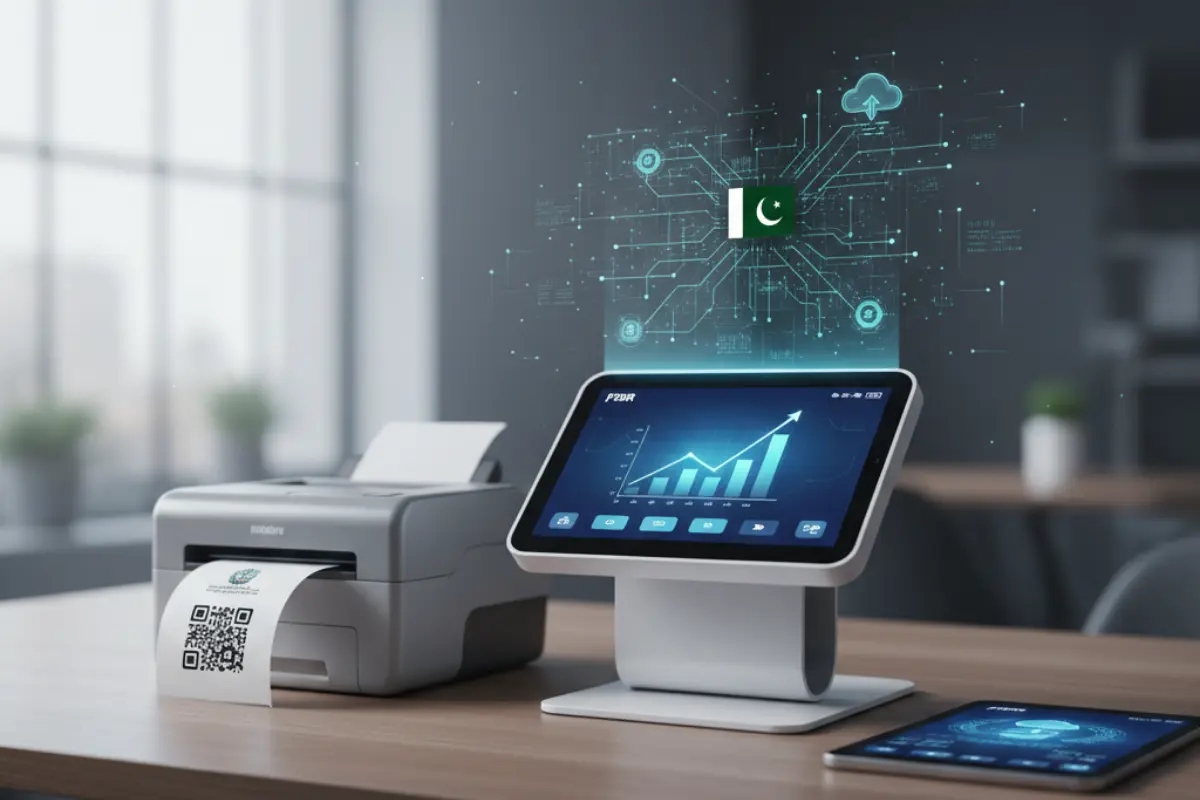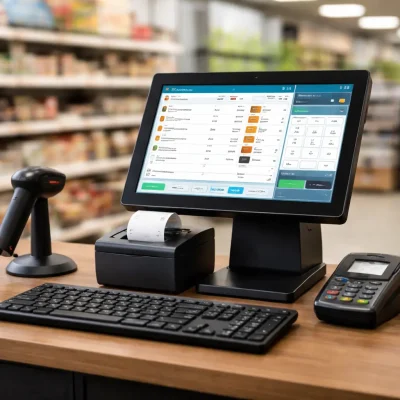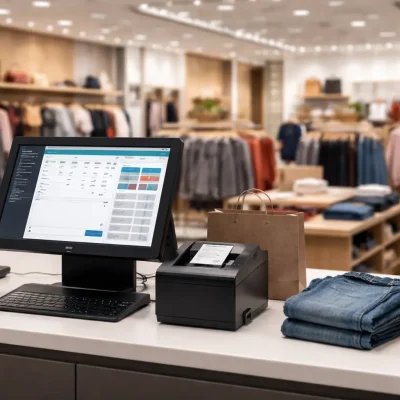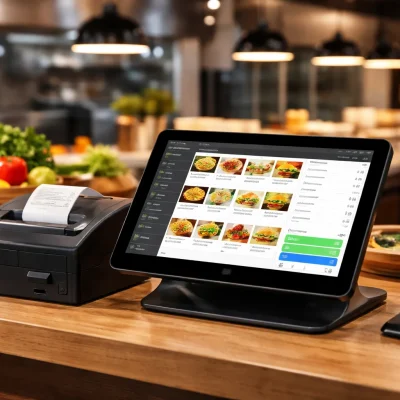In today’s digital age, compliance and transparency are absolutely essential for businesses operating in Pakistan. The Federal Board of Revenue (FBR) has decisively moved toward modernization with its mandatory digital invoicing system, which requires many businesses, particularly retailers and manufacturers, to issue and report sales invoices instantly. Therefore, adopting a compliant POS software with FBR digital invoicing integration is now critical for maintaining legal standing and ensuring seamless operations.
Consequently, for any business with high-volume sales, this new mandate requires a crucial system upgrade. Furthermore, choosing the right POS software with FBR digital invoicing integration is not merely about avoiding heavy penalties; rather, it is about streamlining your operations, significantly boosting credibility, and gaining a massive competitive advantage.
Ultimately, this guide will clearly walk you through the primary benefits of this vital integration, and then, it will provide a simple, step-by-step roadmap for a successful setup.
Understanding FBR Digital Invoicing and POS Integration
The FBR Digital Invoicing system requires businesses to issue sales tax invoices electronically through an integrated accounting or POS system, consequently reporting them to the FBR’s portal (such as IRIS/PRAL) in real-time.
Indeed, when a customer completes a purchase, the integrated POS software with FBR digital invoicing integration instantly performs three critical functions:
- First, it generates a legally compliant electronic invoice.
- Next, it reports the transaction data directly to the FBR via API.
- Finally, it prints the customer receipt, which features an FBR-generated Unique Invoice Number (UIN) as well as a scannable QR code for customer verification.
Top 5 Business Benefits of Integrated POS Software
The transition to a digital, integrated system offers far more value than simple compliance. In fact, here are the most notable benefits your business gains from implementing POS software with FBR digital invoicing integration:
1. Achieve Real-Time, Effortless Compliance
Compliance is, of course, the core driver for the integration, but automation makes achieving it incredibly easy. Specifically, your integrated system automatically manages the entire reporting process, thereby eliminating the risk of human error during manual data entry and monthly reconciliation.
- Avoid Penalties: You stay ahead of FBR deadlines and legal requirements, consequently shielding your business from heavy fines, legal scrutiny, or the potential sealing of premises.
- Audit Readiness: Furthermore, with every single transaction instantly logged, validated, and recorded digitally on the FBR server, your business is perpetually ready for any audit, without the usual panic or extensive preparation.
2. Boost Operational Efficiency and Save Time
Manual invoicing and tax reporting are both tedious and major time sinks. However, integration successfully frees up your valuable staff time.
- Automation: Sales data, tax calculation, and reporting happen instantaneously and automatically, meaning your team dedicates more time to sales and customer service, rather than tedious paperwork.
- Reduced Errors: Automation drastically minimizes errors in tax calculations and data submission, which often led to costly adjustments down the line.
3. Build Unmatched Customer Trust and Credibility
A transparent process naturally builds trust, and the FBR integration makes transparency an inherent part of your customer service.
- Verifiable Invoices: Customers can instantly verify their invoice’s authenticity by simply scanning the printed QR code on the receipt using the FBR’s official Tax Asaan App.
- Enhanced Credibility: Issuing a government-validated invoice immediately positions your business as a transparent, legal, and trustworthy entity, which, in turn, becomes a key competitive differentiator.
4. Gain Powerful Real-Time Business Insights
Your POS system quickly transforms into a powerful, real-time business intelligence tool, instead of just a cash register.
- Real-Time Data: You instantly access accurate data on sales, tax liabilities, returns, and discounts. Thus, this real-time visibility is crucial for smarter decision-making, better cash flow management, and effective inventory control.
- Error-Free Accounting: Integrated sales data flows seamlessly into your accounting software, consequently simplifying year-end reconciliation and overall financial analysis.
5. Future-Proof Your Business Infrastructure
The government is clearly driving the economy toward a fully digital structure. Therefore, adopting integrated POS software with FBR digital invoicing integration today means you are proactively investing in a scalable infrastructure that easily adapts to future tax laws and supports uninterrupted business growth.
Step-by-Step Setup Guide: FBR Digital Invoicing Integration
Integrating your POS system may seem technical, but by following this clear roadmap, you can ensure the transition is smooth and entirely stress-free.
Step 1: Registration and FBR Credentials
Before any technical work begins, you must successfully fulfill the legal and informational prerequisites.
- Register on the FBR Portal (IRIS): Only officially registered taxpayers can proceed. First, you log in to the FBR IRIS portal using your credentials.
- Register Your POS System: Navigate to the Registration → POS Client Registration section. You provide all the required details for each of your Point-of-Sale terminals, including the POS identification number, type, IP address, and version.
- Obtain Credentials: Upon successful submission, FBR generates a unique POS Registration Number (Store ID) and an Access Token/Security Key. Evidently, these are the keys necessary for connecting your POS software with FBR digital invoicing integration.
Step 2: Choosing the Right Integrated POS Software
This is, arguably, the most critical step. You absolutely need a POS or ERP solution built to satisfy the FBR’s stringent technical requirements.
- Select an FBR-Compliant Software: You must choose a modern POS solution (ideally one offered by a Licensed Integrator) that is explicitly built to communicate with the FBR’s API. Usually, certified solutions offer this integration built-in.
- API Configuration: Your software provider (or a Licensed Integrator) uses the POS Registration Number and Access Token from Step 1 to configure the system’s API connection with the FBR’s PRAL/IRIS platform.
- IP Whitelisting: In addition, the IP address of your POS hosting server must be whitelisted with FBR to ensure secure data exchange. Typically, your software provider handles this complex technical detail.
Step 3: Sandbox Testing and Validation
Importantly, never go live without thorough testing. The FBR provides a ‘Sandbox’ (testing) environment to ensure the integration works flawlessly.
- Perform Test Transactions: Your integrator runs a series of dummy sales/invoices through the system in the sandbox.
- Validate Data Exchange: You verify that the system accurately calculates taxes, submits the data in the required JSON format, and successfully receives a unique Invoice Reference Number (IRN) from the FBR system for the test invoices.
Step 4: Go Live and Ongoing Monitoring
Once testing is successfully completed and approved, you are ready to switch to the live (production) environment.
- Switch to Production: The software is now configured to use the live FBR API endpoints.
- Staff Training: You must train your cashiers on the new system and what the FBR-compliant receipt should look like (complete with the QR code and FBR logo).
- Monitor Logs: Finally, continuously monitor your POS system’s logs for any sync errors to absolutely ensure every single invoice reports in real-time.
Final Thoughts: The Path to Digital Success
The FBR’s digital invoicing mandate undeniably confirms that the future of business in Pakistan is digital and transparent.
If your business faces this compliance requirement, the right POS software with FBR digital invoicing integration is your most significant asset. It successfully transforms a legal obligation into a major opportunity for automation, superior financial visibility, and far stronger customer trust. Do not view this as an administrative burden—instead, embrace it as the next smart, necessary step toward running a fully compliant, highly efficient, and increasingly successful business.
At Oneclick, we specialize in providing FBR-compliant POS solutions and handling the entire integration process from registration to go-live testing, ensuring your business achieves seamless compliance and operational excellence with POS software with FBR digital invoicing integration and without technical headaches.




